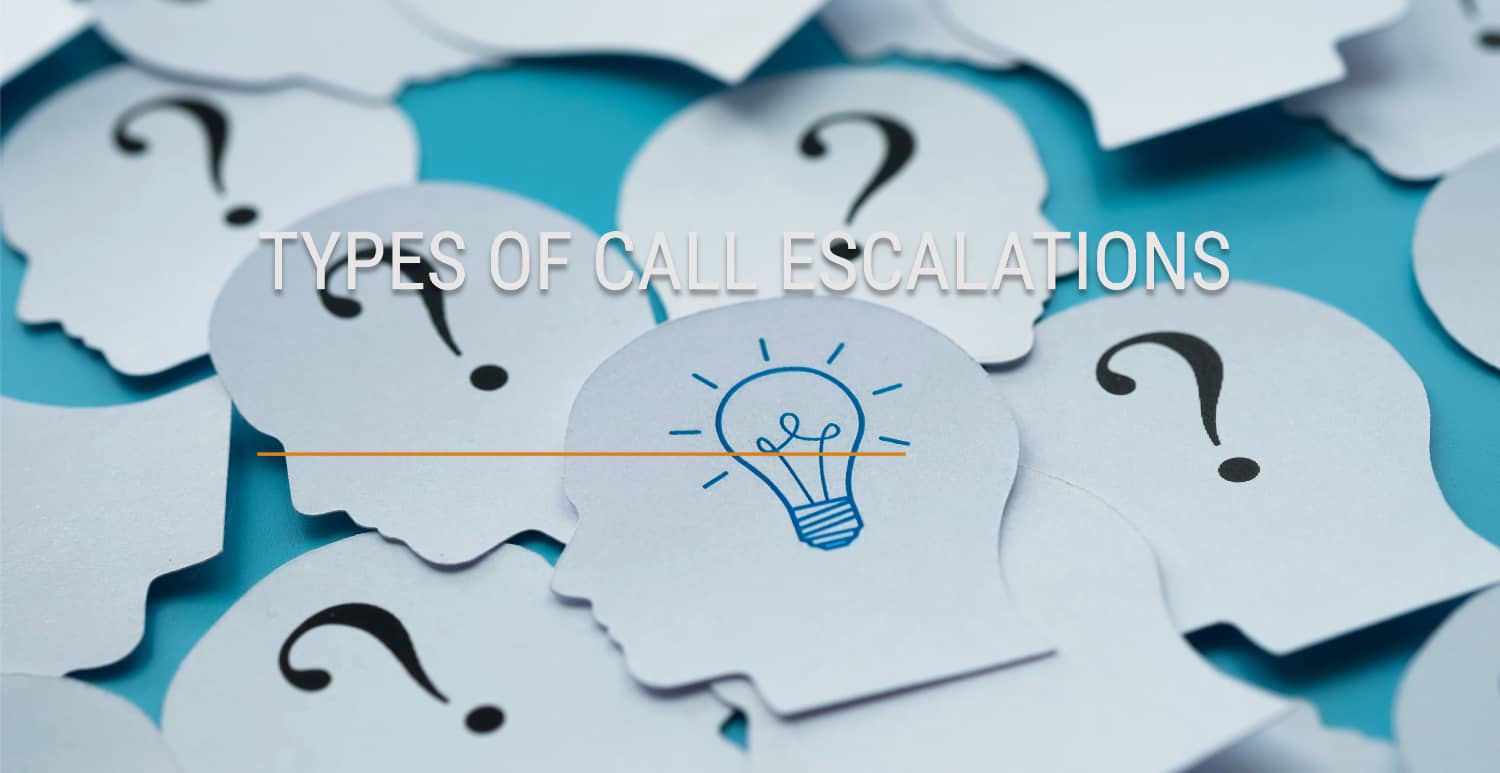Delivering exceptional customer service is paramount. However, despite the best efforts of agents, there are times when a customer's issue requires additional attention, leading to what is known as an escalated call. Escalated calls occur when a customer's inquiry is transferred from the initial support agent to a higher level of authority, such as a supervisor or a specialized department. These escalations can significantly impact key call center metrics, including Average Handle Time (AHT), First Call Resolution (FCR), and Customer Satisfaction Score (CSAT).
Common Causes of Escalated Calls
There are several reasons why calls may be escalated in a call center:
Lack of agent knowledge or authority: When an agent does not possess the necessary information or the authority to resolve a customer's issue, the call may need to be escalated to a more experienced team member or a supervisor.
Complex customer issues: Some customer inquiries are more complex and require the expertise of a specialized department, such as technical support or billing, leading to a call escalation.
Frustrated customers requesting a supervisor: When customers feel that their concerns are not being adequately addressed, they may request to speak with a supervisor, resulting in an escalated call.

Types of Call Escalations
Call escalations can be categorized into two main types:
Hierarchical escalation: This type of escalation involves transferring the call to a higher tier of support, such as from a tier 1 agent to a tier 2 agent with more advanced knowledge and problem-solving skills.
Functional escalation: In this case, the call is transferred to a specialized department, such as technical support or billing, based on the nature of the customer's issue.
Best Practices for Handling Escalated Calls
When dealing with an escalated call, agents should follow these best practices to ensure a positive customer experience:
Employ active listening and empathy: Show genuine concern for the customer's issue and actively listen to their concerns. Use empathy statements to demonstrate understanding and build rapport.
Avoid negative language and focus on positive outcomes: Instead of using phrases like "I don't know" or "I can't," focus on what can be done to resolve the issue and provide a satisfactory solution.
Clearly explain the next steps: Keep the customer informed about the escalation process and provide clear information on what they can expect moving forward.
Thoroughly document call details: Maintain accurate records of the escalated call, including the reason for escalation, the actions taken, and the resolution provided.
Do | Don't |
|---|---|
Use empathy statements | Use negative language |
Actively listen to the customer's concerns | Place the customer on hold for long periods |
Provide clear next steps | Make promises you can't keep |
Document call details thoroughly | Forget to follow up with the customer |
Strategies to Reduce Escalated Calls
While handling escalated calls effectively is crucial, it's equally important to implement strategies to minimize their occurrence:
Invest in robust agent training and coaching: Equip your agents with the knowledge and skills necessary to handle a wide range of customer inquiries, reducing the need for escalations.
Implement intelligent call routing: Use advanced call routing techniques, such as skill-based routing, to ensure that calls are directed to the most suitable agent based on their expertise and experience.
Maintain a comprehensive internal knowledge base: Provide agents with easy access to a well-structured knowledge base containing information on common issues, troubleshooting steps, and company policies.
Leverage AI-powered agent assist tools: Utilize AI-powered tools that provide real-time guidance and suggestions to agents during customer interactions, helping them resolve issues more effectively.
Analyze trends to identify top escalation drivers: Regularly review escalated call data to identify patterns and root causes, allowing you to address systemic issues and reduce future escalations.
Escalation Call Flow Template

Here's an example of an effective escalation call flow:
Agent: Hello, this is [Agent Name] from [Company Name]. How may I assist you today?
Customer: I have been trying to resolve an issue with my account for the past week, and I'm extremely frustrated. I want to speak with a supervisor.
Agent: I apologize for the inconvenience you've experienced. Can you please provide me with some more information about the issue you're facing? I'll do my best to assist you.
Customer: [Explains the issue]
Agent: Thank you for explaining the situation. I understand your frustration, and I want to assure you that I'll do everything I can to resolve this for you. Would you mind if I place you on a brief hold while I review your account?
Customer: Alright, but please be quick.
Agent: [Reviews account and attempts to resolve the issue]
Agent: Thank you for your patience. I've reviewed your account, and unfortunately, this issue requires the assistance of our specialized team. I'll be happy to escalate your call to them now. They'll be able to provide you with a resolution promptly.
Customer: Okay, please do that.
Agent: I've forwarded your call to our specialized team. They will be with you shortly. Is there anything else I can assist you with in the meantime?
Customer: No, that's all for now.
Agent: Thank you for your understanding. Have a great day!
Escalated calls are an inevitable part of call center operations, but with the right strategies and best practices in place, you can minimize their occurrence and handle them effectively when they do arise. By investing in agent training, implementing intelligent call routing, maintaining a comprehensive knowledge base, leveraging AI-powered tools, and regularly analyzing escalation trends, you can significantly improve your contact center's performance and deliver exceptional customer service.
Remember, every escalated call is an opportunity to demonstrate your commitment to customer satisfaction and build lasting relationships with your customers.


